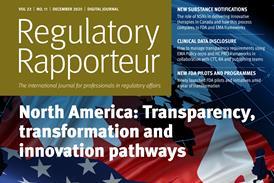As highlighted within this CPD article, a conditional marketing authorisation (CMA) can be revoked in Europe. However only one occurrence has occurred since 2006 (in April 2019). Lartruvo (olaratumab), a humanised antibody, was granted a CMA via accelerated assessment on 9 November 2016 for adult patients with a locally advanced, unresectable or metastatic soft tissue sarcoma (STS).[1] The specific obligations imposed were: (1) confirmation of the efficacy and safety of olaratumab in the treatment of patients with advanced STS, by submission of the “ANNOUNCE” clinical study report of the already ongoing Phase III study JGDJ comparing doxorubicin plus olaratumab vs doxorubicin in patients with advanced or metastatic STS (including exploratory biomarker data) with due date 31 January 2020; and (2) submission of the second interim safety analysis of the Phase III study JGDJ (due date 31 December 2016).
In January 2019, the marketing authorisation holder (MAH) Eli Lilly submitted preliminary results to the EMA, showing lack of efficacy and safety of Lartruvo, and namely that it did not meet its primary objective. Subsequently, on 25 January 2019, the European Commission (EC) triggered an Art 20 procedure and requested the CHMP to assess whether licence should be maintained, varied, suspended or revoked. On 25 April 2019, the CHMP concluded that Lartruvo lacks therapeutic efficacy and that the benefit–risk of the product is not favourable. Consequently, in July 2019 the EC revoked CMA for Lartruvo.[2]
In the EU no other CMAs have been revoked, and only three products have been voluntarily withdrawn since 2006, citing commercial reasons:[3] Zalmoxis (for haematopoietic stem cell transplantation, graft versus host disease) and Arepanrix and Humenza (both for influenza, human, immunisation, disease outbreaks).
Of 14 listed FDA accelerated approval (AA) withdrawals, 10 were withdrawn completely, and four indications were removed while the product remained on the market.[4] Olaratumab received AA in 2013 for soft tissue sarcoma, however in April 2019 the sponsor announced plans for withdrawal due to the lack of survival benefit in the confirmatory trial[5]. In addition, in the US, Ponatinib received AA in 2012 for relapsed/ refractory chronic myelogenous leukaemia (CML) and primary Philadelphia acute myeloid leukemia (Ph+AML). Commercialisation was suspended in October 2013 following FDA concerns of increased risk of life-threatening thrombosis and severe blood vessel occlusion. However, this led to a narrowing of the label in December 2013 and relaunch in January 2014 with a number of postmarket requirements.
Within all expedited processes and regulatory frameworks, the agencies, and in particular the EMA, consider transparency and communication to be key, both in terms of MAH/sponsor engagement, but also for physicians and patients, particularly where benefit vs risk is not demonstrated.
References:
[1] Herold R, Camarero J, Melchiorri D et al. Revocation of the conditional marketing authorisation of a cancer medicine: the olaratumab experience. European Journal of Cancer 2019;123:25–27.
[2] EMA. Lartruvo initial EPAR – public assessment report (23 November 2016) and Article 20 referral – CHMP assessment report (22 August 2019). Available at: https://www.ema.europa.eu/en/ medicines/human/EPAR/lartruvo#assessment-history-section (accessed 19 July 2020).
[3] EMA. CMA 10 Year Report – Annex 1 – detailed information on conditional marketing authorisations. Available at: https://www. ema.europa.eu/documents/report/annex-1-detailed-informationconditional-marketing-authorisations_en.pdf (accessed 19 July 2020).
[4] Olsen K. US FDA accelerated approval (AA) withdrawals. DIA Abstract 2020
[5] Press release. Lilly to establish an access program for patients as it prepares to withdraw Lartruvo from the global market. 25 April 2019. Available at: https://investor.lilly.com/newsreleases/news-release-details/lilly-establish-access-programpatients-it-prepares-withdraw (accessed 19 July 2020).




































